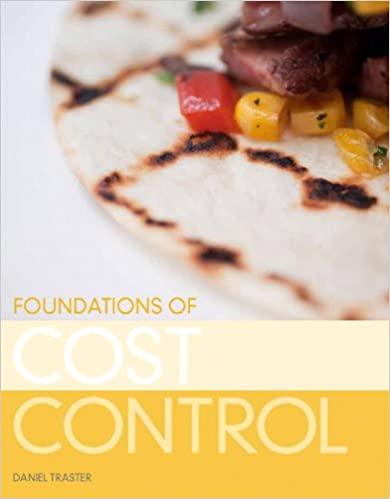Question
Scoresby Inc. tracks the number of units purchased and sold throughout each year but applies its inventory costing method at the end of the year,
Scoresby Inc. tracks the number of units purchased and sold throughout each year but applies its inventory costing method at the end of the year, as if it uses a periodic inventory system. Assume its accounting records provided the following information at the end of the annual accounting period, December 31.
| Transactions | Units | Unit Cost | ||||
| a. Inventory, Beginning | 4,000 | $ | 20 | |||
| For the year: | ||||||
| b. Purchase, March 5 | 10,000 | 21 | ||||
| c. Purchase, September 19 | 6,000 | 23 | ||||
| d. Sale, April 15 (sold for $65 per unit) | 4,400 | |||||
| e. Sale, October 31 (sold for $68 per unit) | 9,000 | |||||
| f. Operating expenses (excluding income tax expense), $610,000 | ||||||
Required:
1. Calculate the number and cost of goods available for sale.
2. Calculate the number of units in ending inventory.
3. Compute the cost of ending inventory and cost of goods sold under (a) FIFO, (b) LIFO, and (c) weighted average cost.
4. Prepare an income statement that shows the FIFO method, LIFO method and weighted average method.
6. Which inventory costing method minimizes income taxes?
Step by Step Solution
There are 3 Steps involved in it
Step: 1

Get Instant Access to Expert-Tailored Solutions
See step-by-step solutions with expert insights and AI powered tools for academic success
Step: 2

Step: 3

Ace Your Homework with AI
Get the answers you need in no time with our AI-driven, step-by-step assistance
Get Started


